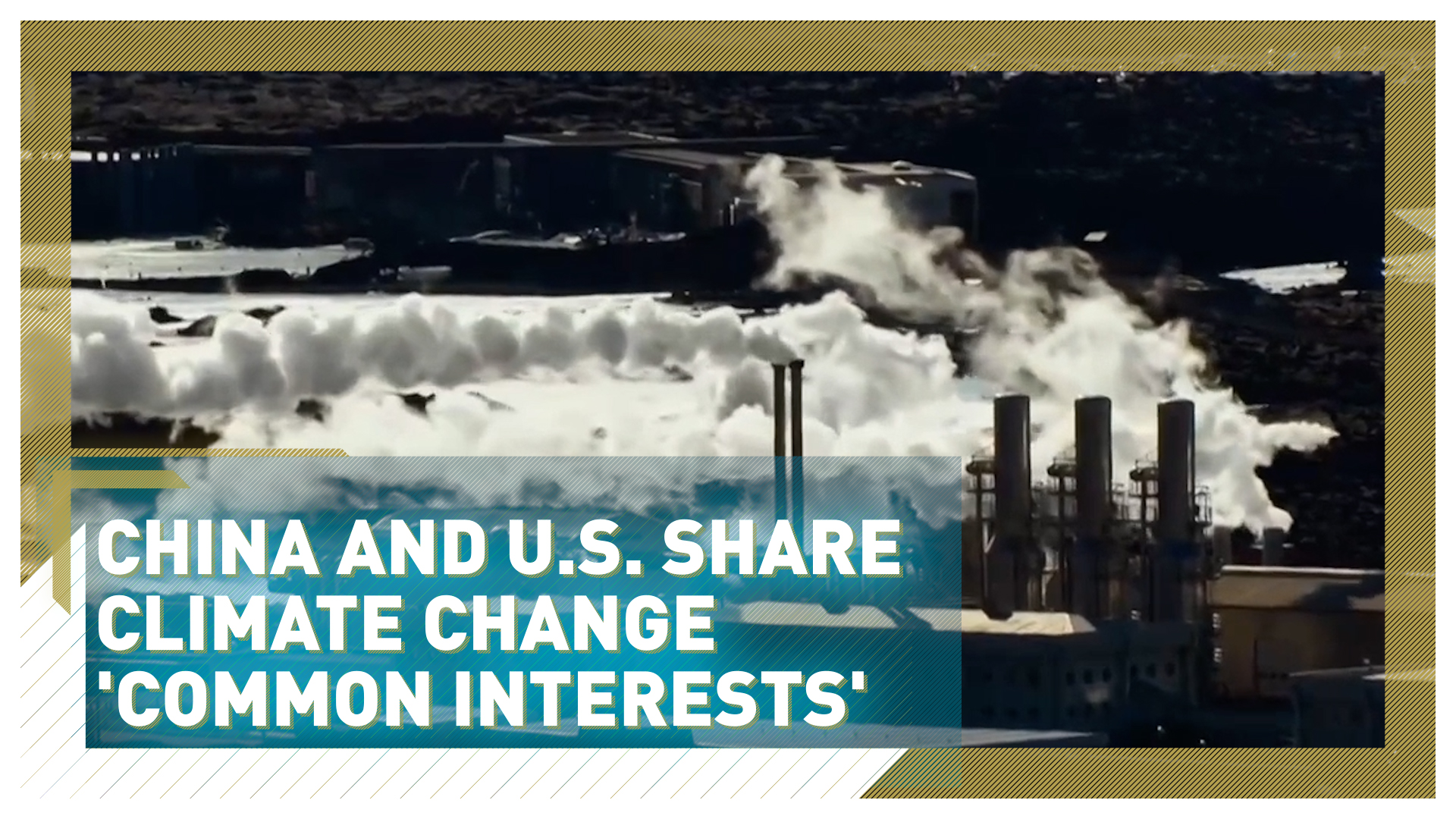02:10

As the U.S. and China return to cooperation on climate issues, one expert has noted the countries share "common interests" in solving the crisis.
Ken Addison, a climate scientist at the UK's Oxford University, told CGTN Europe that a new deal would be beneficial to both countries – and plenty of others.
"I think there is a lot of common interest," Addison said. "There are nearly 200 other countries involved in the United Nations climate change talks.
"And the rapprochement between China and the U.S. on this would go a long way to underlining the importance of those other countries coming on board as well."

The U.S. and China are the two largest greenhouse gas emitters. /CFP
The U.S. and China are the two largest greenhouse gas emitters. /CFP
Sunday's joint announcement from China and the U.S. came after a round of International talks at the end of last year and a meeting between Chinese climate envoy Xie Zhenhua and his U.S. counterpart John Kerry in Shanghai this week.
"The United States and China are committed to cooperating with each other and with other countries to tackle the climate crisis," the China environment ministry said in a statement following Kerry's visit.
The two countries, who are the largest greenhouse gas emitters in the world, will continue to discuss "concrete actions in the 2020s to reduce emissions aimed at keeping the Paris Agreement-aligned temperature limit within reach."
Kerry arrived in Shanghai on Wednesday night under strict COVID-19 restrictions. His visit was the first high-level visit to China by a Joe Biden administered government official since the new president took office earlier this year.
The talks marked a resumption of climate change discussions between the two countries that were ground to a halt during the Donald Trump administration, when the then-President withdrew from the 2015 Paris agreement after claiming it unfairly punished U.S. businesses.
The 2021 United Nations Climate Change Conference, also known as COP26, is set to be held in Glasgow in November and global leaders will be hoping to create greater partnerships aimed at reducing carbon emissions.
But before then, Biden is to hold a virtual summit for dozens of world leaders this week to discuss climate change, to be livestreamed for public viewing.

U.S. climate envoy John Kerry went to Shanghai earlier this week for talks with his Chinese counterpart Xie Zhenhua. /AP
U.S. climate envoy John Kerry went to Shanghai earlier this week for talks with his Chinese counterpart Xie Zhenhua. /AP
Action 'extremely urgent'
Kerry admitted that the talks are "extremely urgent" if they want to reach their targets. "The word urgent is totally applicable to the current crisis that we're in, because countries are simply not getting the job done," he said during an interview with Sky News.
Kerry said the U.S. had to make up for time lost during the Trump presidency and said that meeting the Paris Agreement targets would not be possible unless a major policy change was agreed by all nations.
"The Earth's temperature is going to increase a very significant amount, perhaps as much as 3.7 degrees or more," said Kerry. "The reason for the real urgency now is that because we're not getting done what we said we'd do in Paris – it's actually heading towards 4 degrees or more.
"That's beyond catastrophic in the consequences to food production, water, habitability in various parts of the planet, the melting of ice, the sea level rise, the warming – all the consequences."
Kerry also said that the deal between the U.S. and China is important for global climate change.
"We recognize that China, with nearly 30 percent of the world's emissions, is essential to resolving this crisis and our hopes are that China is prepared to assume responsibility as we are and as other nations are," he said.
The Paris agreement encourages countries to submit more ambitious climate pledges if they are able to do so. China has already promised enhanced actions as it tries to meet its goal to become carbon-neutral by 2060, while the U.S. has also said it will drastically cut emissions.

